Neal Shusterman
Shattered Sky
For Keith, Patricia, Terry, Mark, Maureen, Eric, and Jan, who have been there to remind me that it’s not the end of the world!
Shattered Sky has been a labor of love that could not have been possible without the efforts and support of many people. Thanks to Robby Elfman for sharing with me his heartfelt experiences during The March of the Living. Thanks to Yael Lock and Jeffrey Schrier for Talmudic wisdom and valuable opinions. Grapas a Gabriela Hebin for checking my less-than-perfect Spanish. Thanks to my kids—Brendan, Jarrod, Joelle, and Erin—for being an endless source of joy and inspiration. Thanks to Sharon McKeag, my assistant, for her tireless work, and for being willing to research dubious things like the flash point of human flesh. Thanks to Kathleen Doherty, Tom Doherty, Jonathan Schmidt, and Linda Quinton at Tor Books for their belief in this trilogy and their support of all my work.
The Star Shard Trilogy—and Shattered Sky in particular—is intended for an adult readership. Its themes and subject matter may be too intense for younger readers. That said, I think it’s the best thing I’ve ever written.
“There were six of us,” he began. His body showed none of the bruises from the ordeal he must have endured. Not a strand of his wavy red hair was out of place, his clothes were immaculate—not even the seams of his jeans showed wear. “Six when it all began. Now there are only three left. Winston, Lourdes, and me.”
The man across the table took out a pad, and began to take systematic notes. He wrote down his impressions, as well as the things the redheaded kid said. That’s all he was, thought the man: a kid. Couldn’t be any older than seventeen. Then why am I so frightened? The man pushed the thought out of his mind, and concentrated on his subject, whose name had been seared into the world’s collective consciousness in a matter of months. A young man by the name of Dillon Cole.
“What happened to the other three?”
Dillon didn’t answer right away. He just sat there in the hard, heavy wooden chair. He didn’t move his arms, but then he couldn’t; they were both firmly bound to the arms of the chair with tempered steel handcuffs. The man noted Dillon’s hesitation—that it was either the prelude to a lie . . . or perhaps brought on by the pain of memory. Then, something changed about the boy. He seemed to stop his introspection, and instead turned his gaze outward. The man could almost feel Dillon’s eyes dragging across him as Dillon sized him up.
“You’re a psychological profiler,” Dillon said.
The profiler grinned. “Figured that one out, did you?”
Dillon frowned as if at an insult. There was the touch of Dillon’s eyes again, like silk moving across the profiler’s flesh. “You graduated from Yale,” Dillon told him. “You’re married, no children. You live in a townhouse, and drive a Lexus—or maybe an Infiniti. Eggshell white.”
Now it was the inquisitor’s turn to falter. The boy could have picked up some of it from the profiler’s gold band and class ring—but the rest? Just shots in the dark. Except for the fact that they were right.
“I see you’re quite a profiler yourself,” he told Dillon.
Dillon shrugged. “Not professionally. It’s just a hobby.” Dillon grinned, and the profiler looked away, then silently cursed himself that he hadn’t kept eye contact with his subject. “I thought they saved you guys for serial killers, and stuff like that,” Dillon said.
“If you’re responsible for drowning 400 people in the Colorado River, then you’re a mass murderer. I would say that falls within my job description.”
Dillon shifted in his seat, and looked down at the heavy cuffs on his hands. There was a moistness to his eyes. Was it remorse? the profiler speculated. Then, from Dillon: “Something has to be alive before you can kill it.”
“An interesting philosophy.”
Dillon tugged half-heartedly on his bonds, then looked at the profiler. “Yeah . . . I’ve done some unspeakable things in the past. But believe me, the punishment has fit the crime. There’s nothing you can do to me that hasn’t already been done.”
The profiler tapped his pen on the table, the clicks echoing in the cold interrogation room. “Let’s talk about your three dead friends,” he said. Now that he had regained control of the conversation, he was going to keep a tight rein on it.
“Deanna was the first to die,” Dillon said. “Her body lies trapped in the place between worlds.”
“A place between worlds,” repeated the man. Making a mental note of this delusional construct. “Is this a place you created?”
Dillon grinned. “You seem to think I’m all-powerful.”
The profiler found the grin far more unsettling than he expected. “Didn’t you claim to be a god?”
“I never made the claim—others called us gods. We just got tired of correcting them.”
“Alright, then. What are you?”
“The six shards of the Scorpion Star.”
“The Scorpion Star? You’re saying this has something to do with the supernova?”
Dillon didn’t move, didn’t break eye contact. His eyebrows did not rise in the reflexive twitch of a lie. “Our souls are the six fragments of the soul of that star, which went nova at the moment each of us were conceived.”
“How lucky for you.” The profiler had to hand it to him; the kid’s delusion was distinctively grandiose.
“Lucky? For years each of us was plagued by parasites that leeched onto our bright souls . . . but we purged them. Then we were manipulated and used by a spirit predator. . . but we defeated it. There’s nothing ‘lucky’ about what we suffered.”
“Soul parasites and spirit predators,” said the profiler, with calculated condescension. “Sounds like some nasty business.”
“It was,” said Dillon, becoming annoyed. “And why are you here anyway? I haven’t quite figured out the purpose it serves. It’s not like your report is going to make any difference. Those notes of yours will never see the light of day—you know that, don’t you? They’ll be locked up so tight there won’t be anyone with high enough security clearance to read them.”
“Never mind that. Let’s get back to the other two who died. The other two ‘shards,’ as you called them.”
Dillon took a deep breath, attempting to regain his composure. But it was more than that. The profiler sensed . . . something else. Something that had been there since he had arrived in the room, just on the threshold of perception. Now as he concentrated on it, he was certain it was there—a slow, rhythmic pulse that he could feel resonating through his bones and aching joints. Impossible, the profiler thought, but the pulse seemed to emanate from across the table.
Am I feeling Dillon’s heartbeat?
Dillon twitched his nose, and looked down at his shackled hands. “I have an itch on my nose. Could you scratch it for me?”
“There’s a standing order than no one is to touch you under any circumstances. "
“I see. Are they afraid you’ll pick up whatever disease I’ve got?”
“Tell me about the others who died.”
Dillon sighed, and tried to rub his nose unsuccessfully on his shoulder, then gave up. “Michael and Tory,” Dillon said. “They were the other two. They died in the rubble of Hoover Dam . . . in the Backwash.”
Читать дальше
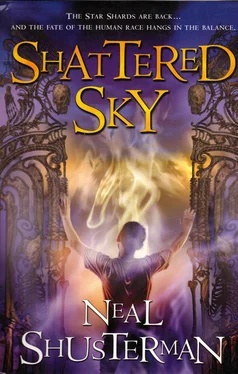
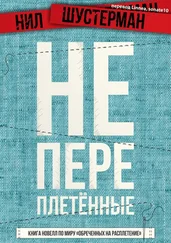
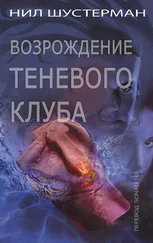
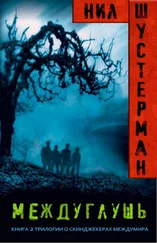
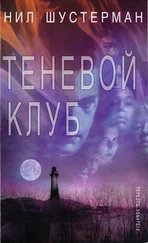
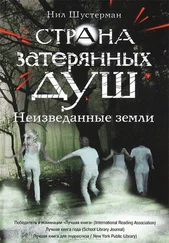
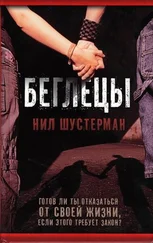
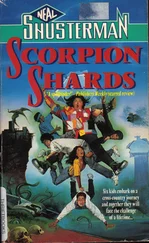
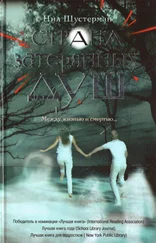

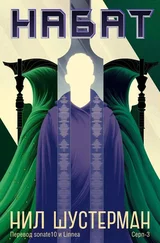
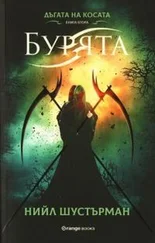
![Нил Шустерман - Жнец [litres]](/books/418707/nil-shusterman-zhnec-litres-thumb.webp)